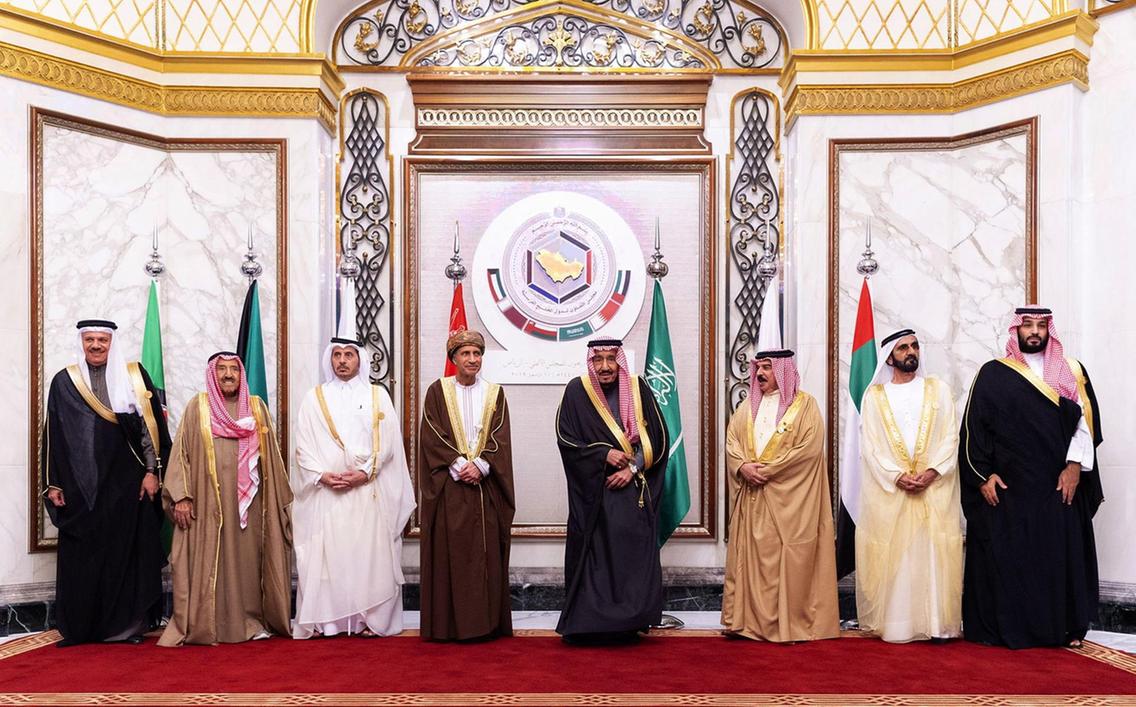Qatar’s Sheikh Tamim warmly embraced by MBS on arrival


Gulf leaders are meeting in Saudi Arabia for their annual summit on Tuesday amid a breakthrough in the long-running dispute between a Saudi-led bloc and Qatar.
Saudi Arabia on Monday announced the reopening of land borders with Qatar after a three and a half-year spat that saw the kingdom, Egypt, the United Arab Emirates (UAE) and Bahrain cut diplomatic and trade ties and impose a land, sea and air blockade on the Gulf state.
Kuwait and the United States had been trying unsuccessfully to bring an end to the crisis that erupted more than three years ago but it wasn’t until late Monday — on the eve of a summit of Gulf Arab leaders and just ahead of President-elect Joe Biden’s swearing-in — that a breakthrough was announced.
The timing was auspicious: Saudi Arabia may be seeking to both grant the Trump administration a final diplomatic win and remove stumbling blocs to building warm ties with the Biden administration, which is expected to take a firmer stance toward the kingdom.
Qatar’s only land border has been mostly closed since June mid-2017, when Saudi Arabia, Egypt, the United Arab Emirates and Bahrain launched a blockade against the small, but influential Persian Gulf country, accusing it of supporting Islamist extremist groups and of having warm ties with Iran. The Saudi border, which Qatar relied on for the import of dairy products, construction materials and other goods, opened briefly during the past three years to allow Qataris into Saudi Arabia to perform the Islamic hajj pilgrimage.
It was unclear what concessions Qatar had made regarding a shift in its policies, but ruling emir, Sheikh Tamim bin Hamad Al Thani, is to take part in a ceremony Tuesday at the summit of Gulf Arab leaders to sign a statement that promises to “usher in a bright page of brotherly relations,” according to Kuwait’s foreign minister.
Qatar confirmed late Monday that Sheikh Tamim would attend the summit, a move that analysts say would have been domestically sensitive for him had the Saudi blockade still been in place.
Kuwait, which had been mediating throughout the dispute, was first to announce the diplomatic breakthrough through its foreign minister late Monday.
While the Saudi decision to end its embargo marks a key milestone toward resolving the Gulf spat, the path toward full reconciliation is far from guaranteed. The rift between Abu Dhabi and Doha has been deepest, with the UAE and Qatar at sharp ideological odds.
Following Kuwait’s announcement, the UAE’s Minister of State for Foreign Affairs, Anwar Gargash, tweeted that his country was keen to restore Gulf unity. However, he cautioned: “We have more work to do and we are in the right direction.”
The annual summit is expected to also see some form of détente between Qatar and the UAE, Egypt and Bahrain. The meeting will be held in the kingdom’s ancient desert site of Al-Ula. The summit would traditionally be chaired by Saudi King Salman, though his son and heir, the crown prince, may instead lead the meeting.
This year, Egypt’s president has also been invited to attend the summit of the six-nation Gulf Cooperation Council, which comprises Saudi Arabia, the UAE, Bahrain, Kuwait, Oman and Qatar.
The summit will be “inclusive,” leading the states toward “reunification and solidarity in facing the challenges of our region,” Saudi Crown Prince Mohammed bin Salman was quoted as saying by the Saudi state-run news agency.
The Saudi move toward reconciliation with Qatar comes just weeks after President Donald Trump’s advisor and son-in-law, Jared Kushner, visited the kingdom and Qatar in a final push by the administration to secure a diplomatic breakthrough. Kushner has reportedly been invited to attend the signing ceremony in Al-Ula.
Normalization with Qatar could buy Saudi Arabia time to strike compromises with the Biden administration on other issues, like its war in Yemen and potential U.S. re-engagement with Iran, said Samuel Ramani, a non-resident fellow at the Gulf International Forum.
“Saudi Arabia could frame a partial detente, which allows Qatari civilian planes to fly over Saudi airspace and de-escalates the information war, as proof of ‘new thinking’ in Riyadh,” Ramani said ahead of the announcement.


